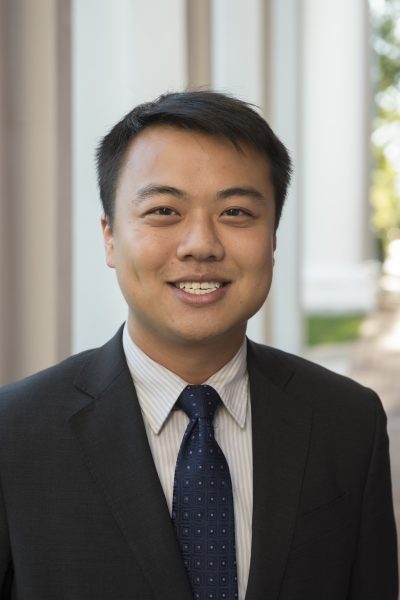Summer Experience: Mark Zhuang ’18L Picks Up the Pace in the U.S. Attorney’s Office
“The attorneys I worked with threw me into the deep end, giving me the chance to figure things out on my own, but were always available to answer questions and point me in the right direction.”
Mark Zhuang, a 3L from Staten Island, New York, graduated from SUNY Binghamton with a B.A. in Biology and Political Science. Mark is a Lead Articles Editor for the Journal of Civil Rights and Social Justice. After his 1L year, Mark served as a Judicial Intern to the Honorable Eileen Bransten in the New York Supreme Court-Commercial Division.
What did you do for work this summer?
I worked at the U.S. Attorney’s Office for the Western District of Virginia in Roanoke. I also worked remotely for an alumni based in Denver, assisting on business formation and litigation matters.
How did you find/get this position?
The U.S. Attorney’s Office came on campus to conduct interviews. I signed up for an interview and was fortunate to receive an offer. For my second job, I applied in May when I saw the position posted on SCORE. The attorney reached out to me, and a member of the faculty gave me a great recommendation, which was instrumental in me landing the job.
Describe your work experience.
At the U.S. Attorney’s Office, I worked on criminal and civil matters that our office litigated in federal court. My work involved researching legal issues, drafting motions, appearing in Magistrate’s Court to prosecute petty offenses, and accompanying the assistant U.S. Attorneys to court for criminal and civil hearings.
In my part-time job, I assisted in drafting LLC operating agreements, researching legal issues we faced in litigation, interviewing witnesses, and assisting in trial preparation.
What were some skills you developed this summer?
First, my researching greatly improved this summer, partly because I was doing it almost every single day. Second, I got the chance to tackle writing assignments on my own and to take the lead on substantive motions. The attorneys I worked with threw me into the deep end, giving me the chance to figure things out on my own, but were always available to answer questions and point me in the right direction. Third, my attention to detail great improved. I realized that the little things can make or break a case, and they are vital to being a great attorney.
What classes or experiences were useful in preparing you for the summer work?
Evidence, bankruptcy, CBA (Close Business Arrangements). We ran into evidentiary issues both at the U.S. Attorney’s Office and also at my second job, and having taken evidence, I was able to better understand the issue and know where to start my research. Professor Beth Belmont was also incredibly helpful when our team ran into an evidentiary question that we did not know how to resolve. I ended up texting her with my question, and she got us onto the right track. Judge Connelly’s Bankruptcy class gave me a great understanding of the bankruptcy system, and I was able to hit the ground running on a bankruptcy adversary proceeding in a bankruptcy matter that came up over the summer.
What surprised you about the work you did this summer?
I was surprised at how quickly things moved in criminal cases. Last summer, when I worked for a judge, we only had civil cases, and things got drawn out over years and years. The work at the U.S. Attorney’s Office had shorter deadlines and faster turnaround times, so the attorneys could wrap up a prosecution in a matter of months and not years.
What was your favorite aspect of this summer work experience?
I loved sitting with the AUSAs and listening to them talking about their experiences over the years—from the crazy things defendants would do to the things they learned over the years.
Has this experience helped you figure out post graduate plans, and if so, how?
I think this summer and last summer really gave the chance to see how legal issues play out in court. I can’t imagine spending years and years of my life on a single case that gets appealed up and down the courts, which is why I would want to go into a faster-paced area of law where all parties have an interest in coming together and finding common ground for a solution. I am still interested in exploring transactional work, but this summer also showed me that white collar crime/internal investigations is a great area of law to explore, so I will also be exploring opportunities in white collar criminal defense.
How do you think this experience will shape the rest of your time at W&L Law?
I will be continuing my internship at the U.S. Attorney’s Office throughout the school year, and I look forward to continuing my work with the attorneys there.
 Mark Zhuang ’18L
Mark Zhuang ’18L
You must be logged in to post a comment.